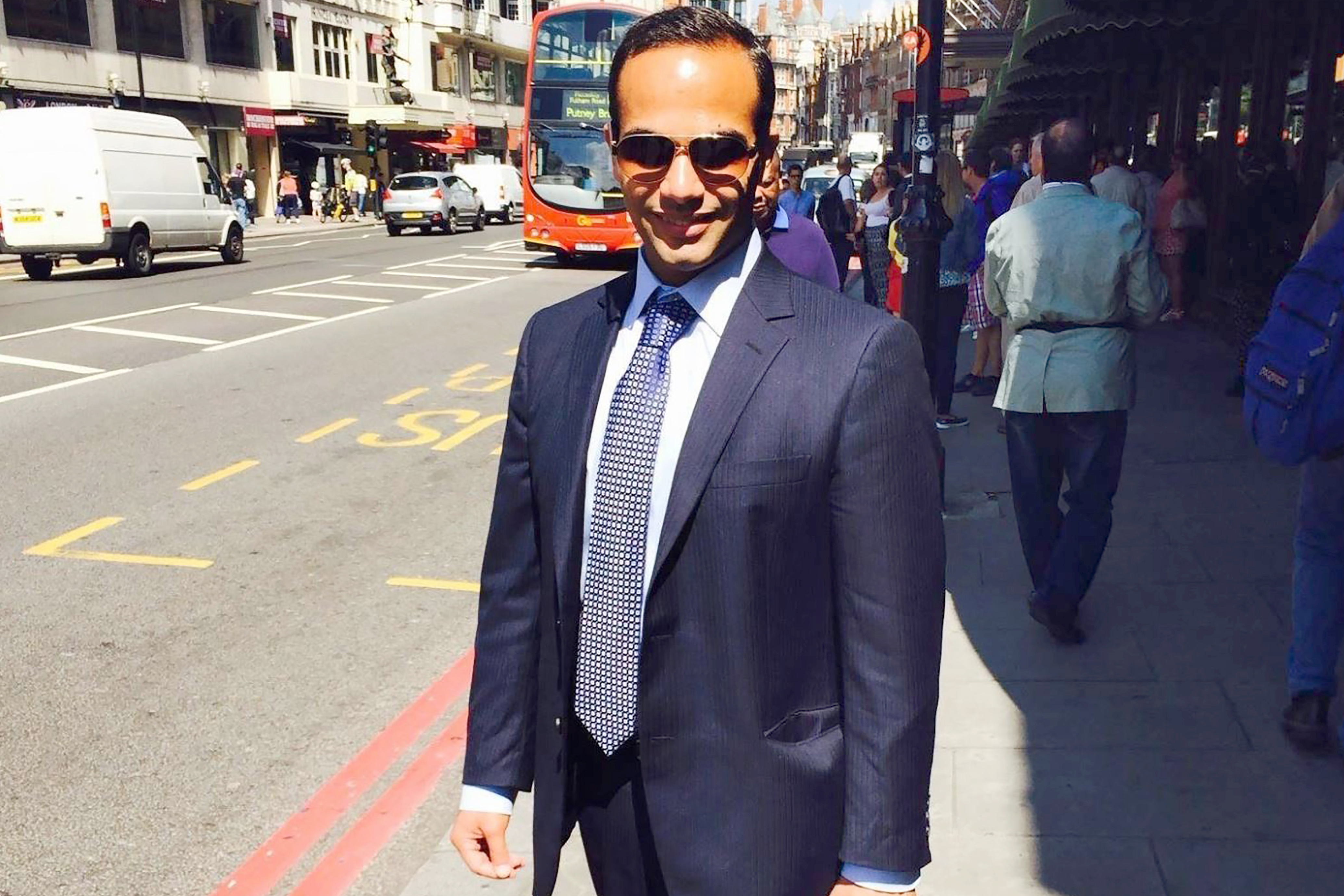Trump aide whose Russia ties sparked probe to be sentenced
This undated image posted on his Linkedin profile shows George Papadopoulos posing on a street of London. (-)
Washington (AFP) – The foreign policy advisor to President Donald Trump’s election campaign whose contacts with Russians set off the investigation into possible collusion with Moscow is to be sentenced on Friday.
After cooperating with Special Counsel Robert Mueller’s Russia probe for more than a year, George Papadopoulos faces up to six months in prison for one count of lying to investigators.
He has testified that senior members of the Trump campaign encouraged him during 2016 to build ties with Russia, including after he told them that Moscow possessed — and could be willing to share — dirt on Trump’s election rival Hillary Clinton.
Those issues are now at the heart of Mueller’s sprawling investigation, which increasingly threatens Trump’s inner circle and the president himself.
Out of the 35 people and entities so far charged, Papadopoulos is one of five who have pleaded guilty and will be the second to be sentenced.
Prosecutors have recommended he be jailed for up to six months for one count of making false statements to investigators.
Papadopoulos has asked to be sentenced to probation — and have that immediately terminated, arguing that the past 13 months he has spent cooperating with the investigation is “the equivalent of one year of probation.”
– Offered ‘dirt’ on Clinton –
The 31-year-old Chicago native was a little-experienced petroleum analyst based in London when he joined the Trump campaign in March 2016 as one of a handful of members of the future president’s national security and foreign policy advisory board.
Within weeks, he made contact with a mysterious professor, Joseph Mifsud, who touted links to the Kremlin and introduced him to others who ostensibly had connections to Russian President Vladimir Putin — including a woman who claimed to be Putin’s niece.
At the end of March 2016, Papadopoulos told Trump, then-senator and now Attorney General Jeff Sessions, and members of the national security team at their first meeting in Washington that he had connections in London that could set up a Trump-Putin meeting ahead of the November election.
“While some in the room rebuffed George’s offer, Mr Trump nodded with approval and deferred to Mr Sessions, who appeared to like the idea and stated that the campaign should look into it,” Papadopoulos claimed in a pre-sentencing statement last week.
Sessions has claimed he opposed the idea.
In subsequent campaign communications, Papadopoulos was encouraged to pursue a Putin-Trump meeting. In late April he told them that Mifsud said the Russians had information that could harm Clinton, in the form of thousands of emails.
Weeks later, stolen Clinton emails were leaked over the internet by what US intelligence chiefs now say were Russian intelligence actors. Papadopoulos says he had nothing to do with the leak.
– ‘Misguided loyalty’ to Trump –
US investigators were only alerted to Papadopoulos’ activities in mid-2016 after he told Australia’s ambassador to London, Alexander Downer, about his talks with Mifsud during a late-night drinking session in a London pub.
After the Clinton emails were leaked, the Australians told US intelligence counterparts what Downer had heard, spurring the FBI to begin investigating possible collusion between the Trump campaign and Moscow.
In his pre-sentencing statement, Papadopoulos admitted lying to FBI investigators in January 2017 but said it had been out of a desire to protect his career and a naive loyalty to the Trump administration. The lies did not impede the investigation, he argued.
“Caught off-guard by an impromptu interrogation, Mr Papadopoulos misled investigators to save his professional aspirations and preserve a perhaps misguided loyalty to his master,” the statement said.
Disclaimer: This story has not been edited by Siliconeer and is published from a syndicated feed. Siliconeer does not assume any liability for the above story. Validity of the above story is for 7 Days from original date of publishing. Content copyright AFP.


